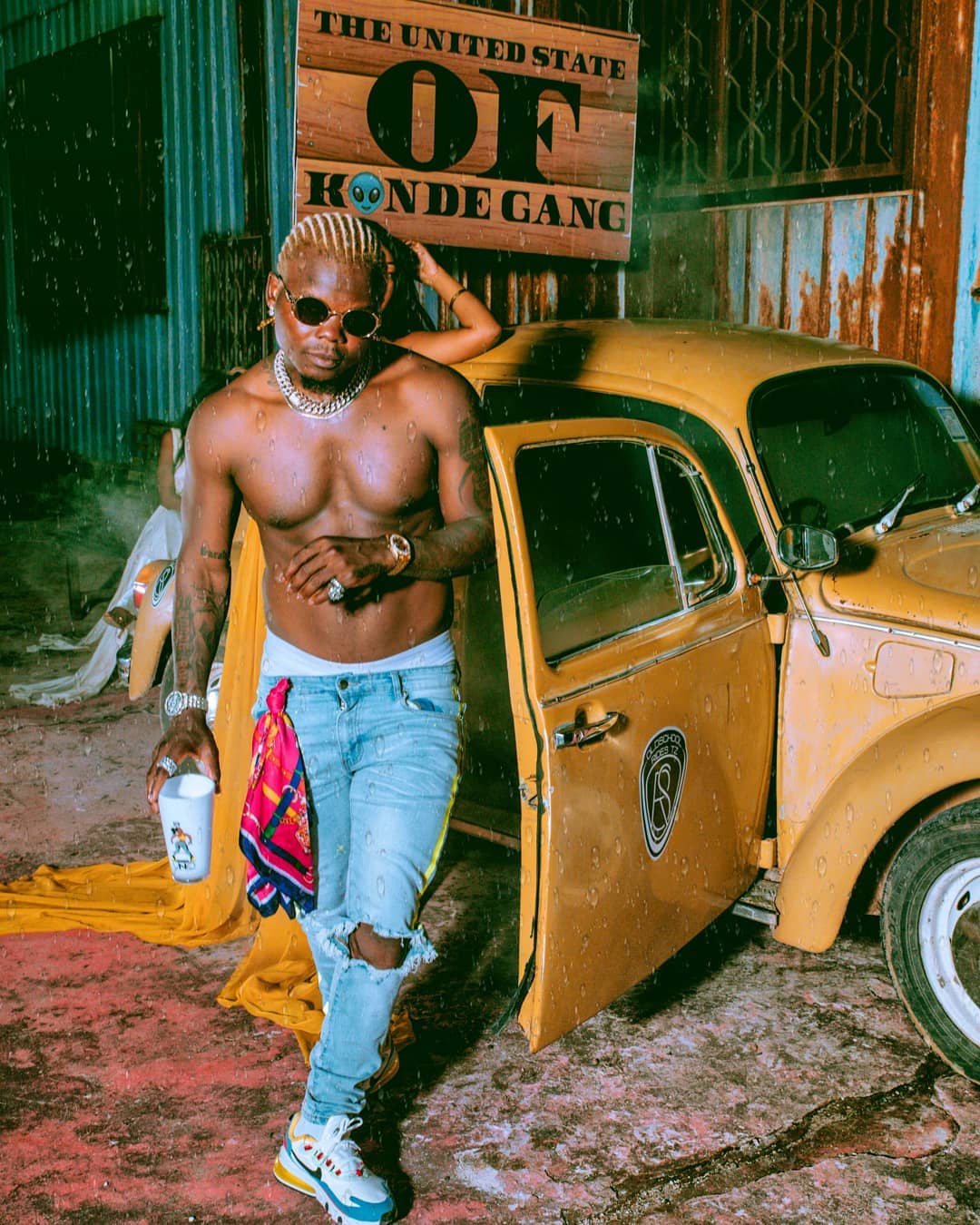Hip-hop, the revolutionary genre that originated in the Bronx, New York City, in the 1970s, has now turned 50, marking five decades of immense cultural impact, artistic expression, and social change worldwide.
On August 11, 1973, a group of teenagers organized a back-to-school party in the rec room of their apartment building located in the Bronx. At the helm of the event was deejay Kool Herc, the pioneer himself.
From that moment, hip-hop emerged and underwent a remarkable evolution, ultimately exploding into the cultural phenomenon we know today.
As the genre celebrates this momentous milestone, its influence on Africa and African rappers cannot be overlooked.
The birth of hip-hop brought about a seismic shift in the world of music and paved the way for aspiring artistes to tell their stories and share their experiences through rhythm and rhyme.
For Africa, hip-hop served as a bridge between continents, connecting the global African diaspora and transforming the way artistes from the continent expressed themselves.
This article delves into the significance of hip-hop turning 50 for Africa, African rappers, hip-hop heads, and all those who appreciate this powerful genre.
The African Hip-Hop Journey
Hip-hop made its way to Africa in the early 1980s, and since then, the genre has embedded itself deeply into the continent’s musical and cultural fabric.
As African nations were grappling with their identities in the aftermath of colonialism, hip-hop became a platform for artistes to voice their socioeconomic struggles, celebrate their heritage, and raise awareness about the social issues faced by their communities.
One powerful, legendary hip-hop music group Kalamashaka made an indelible mark that will never be forgotten across the globe, not only in Africa.
Africa’s diversity and rich cultural heritage provided a unique backdrop for hip-hop to evolve into various sub-genres, each infused with its distinctive flavors and rhythms.
From South Africa’s Kwaito to Nigeria’s Afrobeats and Kenya’s Genge, African hip-hop pioneers created a powerful fusion of their indigenous sounds and hip-hop elements, enabling them to craft narratives that resonated with audiences both locally and globally.
Impact on African Rappers and Hip Hop Heads
Hip-hop’s 50-year journey has played a transformative role in the lives of African rappers and hip-hop enthusiasts.
By providing an outlet for creative expression, the genre empowered countless artistes to challenge stereotypes, speak out against injustice, and celebrate their roots.
African rappers, such as Nigeria’s M.I. Abaga, South Africa’s AKA(R.I.P), Uganda’s Bobi Wine, Ghana’s Sarkodie, and Kenya’s Octopizzo, have skillfully wielded the power of hip-hop to address pressing issues like corruption, inequality, and social unrest in their respective countries.
Hip-hop has not only created a sense of community among African rappers but has also allowed them to connect with like-minded artistes globally, fostering a sense of solidarity that transcends borders.
The Influence on African Culture
Beyond its impact on African artistes, hip-hop has significantly shaped African culture and society.
From fashion to language, dance, and visual arts, hip-hop culture has infiltrated the African landscape, becoming a powerful medium for cultural exchange and self-expression.
African hip-hop heads, inspired by the likes of Tupac Shakur, Nas, and Jay-Z, have embraced the ethos of hip-hop, using it as a tool to engage with their communities and effect positive change.
African rappers and hip-hop enthusiasts have also played a pivotal role in dismantling the stereotypical portrayal of Africa in mainstream media. By promoting a more nuanced and authentic representation of their countries, they have showcased the continent’s vibrant diversity, resilience, and creativity.
Beyond Borders: Global Recognition
With hip-hop’s global reach, African rappers have gained international recognition, breaking barriers and influencing the global hip-hop scene.
Artistes like Sarkodie and Nasty C have collaborated with prominent international artistes, proving that the African hip-hop movement has transcended geographical boundaries and garnered appreciation beyond the continent.
This global recognition has also opened doors for African artistes to perform on international stages, further exposing their talents to a broader audience.
View this post on Instagram
As hip-hop celebrates its 50th anniversary, the genre’s journey is intrinsically intertwined with the growth and evolution of Africa’s hip-hop scene.
African rappers and hip-hop heads have embraced the power of this musical revolution, using it as a means to express their truths, challenge societal norms, and elevate their voices.
Hip-hop has bridged continents, fostering a sense of unity among artistes from diverse backgrounds and enabling them to break down cultural barriers.
Looking ahead, the next 50 years promise even more groundbreaking achievements for African rappers and hip-hop culture.
As the genre continues to evolve, Africa will undoubtedly play an instrumental role in shaping its future, with its unique blend of tradition, innovation, and storytelling.
The celebration of hip-hop’s 50th anniversary should serve as a reminder of the genre’s immense impact on Africa and the world, honoring the pioneers who paved the way while inspiring the next generation of African rappers and hip-hop heads to make their mark on the global stage.
If it wasn’t for hip hop, we wouldn’t know about established, powerful African rappers who have been entertaining us for years. I’m talking rappers like Sarkodie (Ghana), Cassper Nyovest (South Africa), M.I Abaga (Nigeria), Nasty C (South Africa), AKA (South Africa), Olamide (Nigeria), Khaligraph Jones (Kenya), A-Reece (South Africa), Octopizzo (Kenya), Phyno (Nigeria), Stogie T (South Africa), Kwesi Arthur (Ghana), King Kaka (Kenya), Navio (Uganda), Medikal (Ghana), Kayvo Kforce (Kenya), Kwesta (South Africa), Emtee (South Africa), Falz (Nigeria), Nadia Nakai (South Africa), M.anifest (Ghana), Blaqbonez (Nigeria), Sho Madjozi (South Africa), E.L (Ghana), Riky Rick (South Africa), Kiff No Beat (Ivory Coast), Laylow (Nigeria), Keko (Uganda), MHD (Senegal), Niniola (Nigeria), R2Bees (Ghana), Rouge (South Africa), Ycee (Nigeria), Sjava (South Africa), Smallz Lethal (Kenya).
The Hip Hop 50 Live anniversary celebration in New York will be headlined by hip-hop legends such as Run-DMC and the pioneer DJ Kool Herc.
The concert extravaganza is scheduled for August 11, commemorating the historic date in 1973 when Clive “DJ Kool Herc” Campbell hosted a back-to-school party at the community center located at 1520 Sedgwick Ave., a moment that marked the birth of the genre.
Snoop Dogg and Ice Cube will be present to perform representing West Coast.




